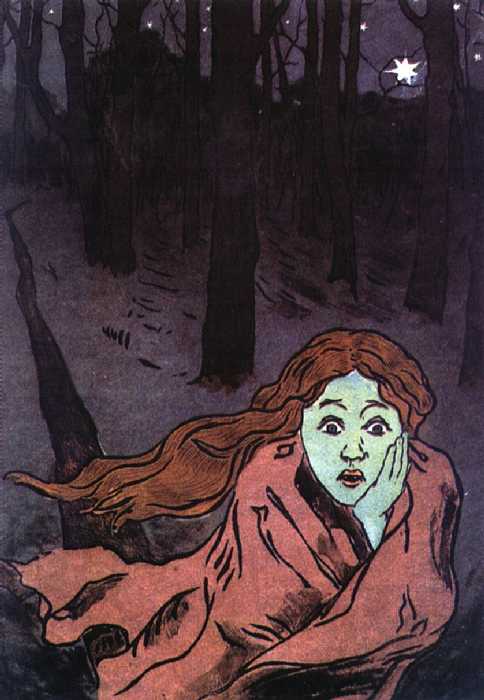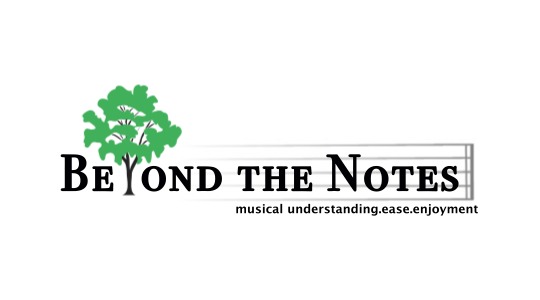 |
| Maria Yakunchikova, "Fear" from Wikimedia Commons |
I'm always up for a challenge. Usually this is a good thing and one that energizes me since I know that on the other side, especially if it is somewhat successful, I usually rediscover a new world of confidence and inspiration and am more motivated to take on even greater challenges. But sometimes, as was the case a few weeks ago, the challenge ends up being more daunting than I had imagined and that, quite simply, is not much fun at all.
So here's the most recent scenario:
- Sir James Galway coming to teach a masterclass at Virginia Tech
- 3 flute students performing
- music not given to me until two weeks before the masterclass
- 2 out of the three were concertos that I had never even heard before
- the flutists playing those concertos didn't come into town until the night before and the morning of the masterclass
Perhaps I should have insisted on getting the music sooner but, well, life happens. I didn't. As soon as I did get the music and the reality of the situation began to hit me, I realized that I was going to have to try some new things in order to be as ready as I could be for the masterclass. Here's what I came up with:
Listen to recordings of the concertos a lot, following along with the score and marking in which instruments in the orchestra play which lines.
Identify which musical lines are actually heard when played by an orchestra.
Eliminate anything in the music that can't be heard in recordings.
Mark in the music what I wanted to leave out and what I felt was crucial to play.
Mark the tricky passages that would require my attention whenever I sat down at the piano.
Schedule time to practice every day that I do practice.
Practice cognitively and carefully.
Spend a portion of time every day playing through the movements in their entirety up to tempo to get a feel for where I am, to practice playing with a focus on musical intent, and to practice accepting imperfection.
Sing the flute part along with the orchestra part from the get-go, focusing primarily on rhythm and articulation at first and then expanding to include pitches.
Conduct through everything while listening the recording and while hearing it in my head.
Stay as calm and cool as possible.
This all seemed to work pretty well until I found myself on the day before the masterclass. I knew I wasn't doing well when my husband kept looking at me and saying, "Wow, I've never seen you look like this before. You're really struggling." Ugh. He was so right. I felt unprepared, frustrated that I wouldn't be playing the music with the soloists until right before the masterclass, and nervous to play for someone as famous as Galway. A big fan of cognitive psychology I tried to talk myself through my fears but I kept sinking back into worry. That night, after I received a phone call from one of the flutists, saying that he wouldn't be in town until an hour before the class, I decided that I had to do something different to calm my nerves - I was going to crack otherwise. So what did I do?
Facebook. Yup, Facebook. And I don't even like Facebook so that tells you how desperate I was.
I looked up the flutist on Facebook in hopes that I could at least see what he looked like. Strange, huh? But it worked! I saw his face, found a link to his personal website and learned quite a bit about him. As I was listening to some video clips he had of his playing I suddenly realized that I was breathing again, I think because I was reminded that music-making is about people, about sharing music, about communicating. It's not about all the tiny notes on the page and whether or not we hit them all, it's about the music. It's not about impressing someone famous who might not even want to be impressed. And then I remembered why it is I like accompanying, even in difficult situations. I like to counteract the nerves that another person feels, to figure out ways to usher them through stressful times in a graceful way and to hopefully give them a chance to enjoy the music and performing.
That night I slept just fine. Yes, I still worried about the bit orchestral tuttis that have entirely too many notes in them and yes, I worried about whether or not I could keep track of the flutists' parts, but I had finally found my way back to myself.
And when I'm myself, I'm a pretty decent pianist and a supportive accompanist. And when I'm myself I have no problem walking onto a stage.
Nothing wrong with that.
If you have any experiences with extreme performing that you'd like to share, please feel free to do so in the comments. We can all learn from one another when it comes to dealing with nerves!
Tweet

Another epic tale, Erica. You approached this challenge with such grace and wisdom. For me, the take home point was this that you wrote: " And then I remembered why it is I like accompanying, even in difficult situations. I like to counteract the nerves that another person feels, to figure out ways to usher them through stressful times in a graceful way and to hopefully give them a chance to enjoy the music and performing. "
ReplyDeleteTo me, it seems that you shift your emphasis from fear of the unknown (possible mistakes, etc.), to true compassion. When I worry about a performance, I always remind myself that I'm there to serve. I'm there to serve the other musicians, the audience and ultimately, the music. This puts me at ease, because it reminds me that I'm proceeding with love. I've not yet had the privilege of hearing you play, but no doubt, you are a magnificent accompanist, somebody I'd want in my corner if I were to play a recital. Thanks for that!
Oh yes, Bill.
ReplyDelete"It reminds me that I'm proceeding with love." Yes! And I completely relate to your connection to other musicians, to the audience and to the music. I'd also add composer in there. Music can be such a social, compassionate act if we allow it to be and personally when I approach music making in this way my playing becomes so much more free and honest.
Thank you for your kind words of support and understanding. I'm finding such great joy in meeting others that seem to share a similar heart for music and its potential to link people together in a beautiful way.
All the best,
Erica